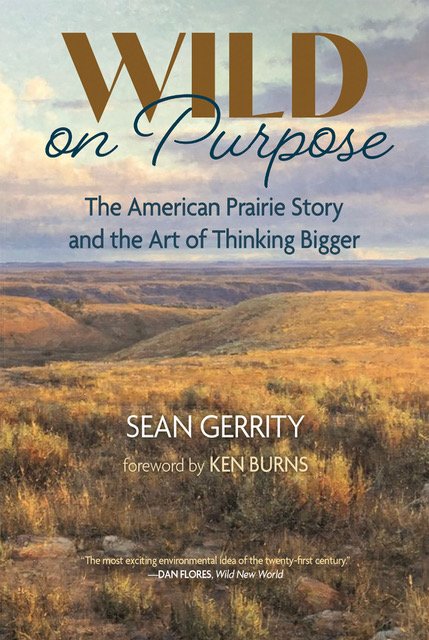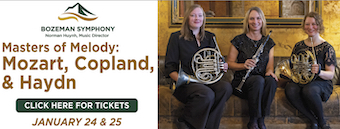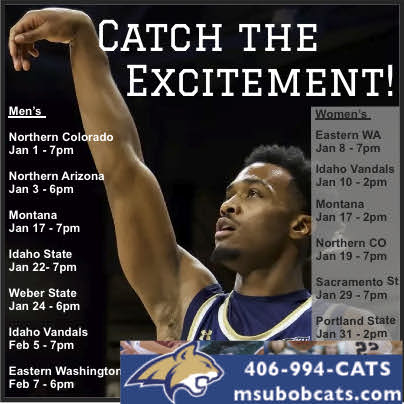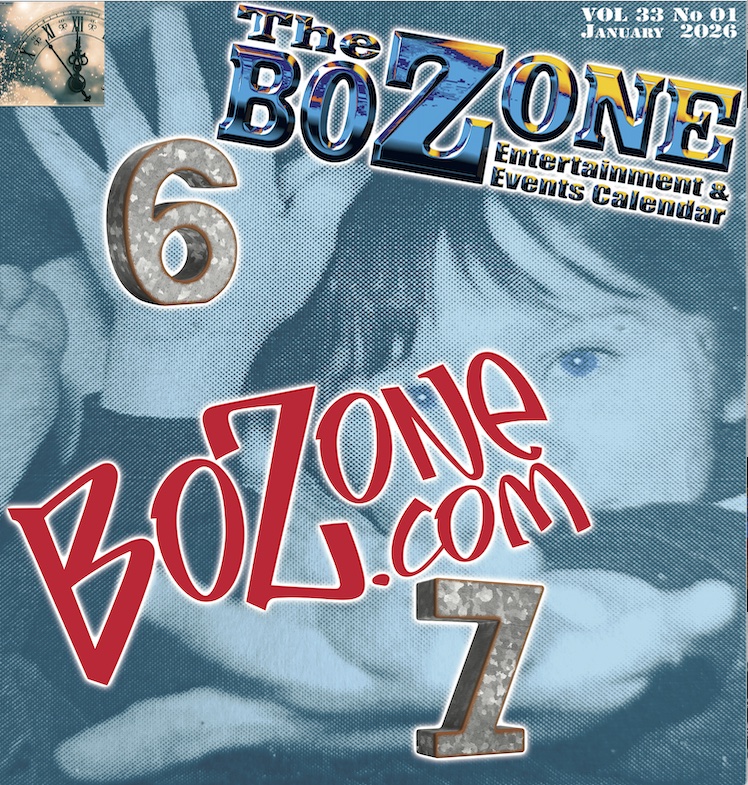Croce legacy performance comes to Bozeman’s Ellen Theatre
Some artists are afforded the chance to tell their personal stories as they see fit, at a particular moment when they know the time has come. But for many, there is no choice — the story emerges hardwired to the music and they become forever identified with it no matter how their story may evolve or change.
A.J. Croce has been inextricably linked to a version of his own story by virtue of his name. He’s experienced a lifetime of comparisons to a father he lost at age two, whose music bears little resemblance to his own output yet still serves as a reference point despite the years that have passed and the many iconic mentors who have stepped in to offer their counsel, creativity, and endorsement throughout his long career.
It’s curious then that it now feels necessary to include the reference, as enough time has passed that a new generation of tastemakers and journalists might not know who Jim Croce was — that he was a golden-voiced everyman, a singer/songwriter/guitarist who died too soon, leaving one of pop music’s most beautiful and memorable ballads (written about a young A.J.) in his wake.
Croce the younger, on the other hand, is a piano man, first and foremost, and a vocal stylist second. His muted growl pulls from a host of American traditions and anti-heroes — it’s part New Orleans, part juke joint, part soul, but somehow evokes New York, a continuum where John Lurie meets Lou Reed. He is further a songwriter, driven by a personal muse, informed by a life on a boomerang of tragedy.
In anticipation of his upcoming string of Montana performances, The Rolling Zone hopped on the phone with Croce to talk his new album, euphonic imperfection, and endless musical inspiration.
RZ: Hey A.J. You’re gearing up for a batch of November tour dates, including one at Bozeman’s Ellen Theatre. What can you tell us about your plans for this outing dubbed “Croce: Two Generations of American Music”?
AJC: It’s a pretty energetic show, [with] some amazing players. Gary Mallaber from Van Morrison’s Tupelo Honey and Moondance albums, playing drums. He was also with Steve Miller for almost thirty years. David Berard, the bass player, is phenomenal. He was with Dr. John for almost thirty years, [and] has been out with me now for a couple years. Michael Bizar is playing second guitar on this, and I’ll be playing piano and guitar. It’s a real energetic show. It’s going to be special. I get to play my stuff all the time and I get to play the stuff that influenced me all the time, but I don’t often take the time to play my dad’s stuff. This is a special treat where I can connect with his music and the music that connects us both. Whether it’s something like Sam Cooke, or some old folk thing, or a bluesy country song, some Brownie McGhee or Mississippi John Hurt — so many different things that we connected on.
RZ: You’re also touring in support of your recent ninth release, Just Like Medicine, whose underlying theme, as I understand it, is the healing power of music. What were your intentions when crafting this album? 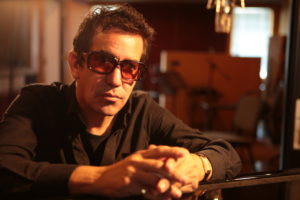
AJC: I think there were a lot of different things. I was going through a lot of changes — my kids grew up, moving back to Nashville. There was a lot of change in my life, some real positive stuff and some challenges in the process. With this album, I really found a way of connecting musically and dealing with stuff that a lot of people deal with. Because of [producer] Dan Penn, this was a very soulful project. Of course there’s elements of ‘60s soul — the Muscle Shoals horn section is there, The McCrary Sisters are singing, Steve Cropper’s playing guitar, and David Hood from Muscle Shoals is on bass. We recorded everything live to tape. The whole thing is soulful. It was kind of an amazing thing. And we recorded it mono with the idea that most people listen to music on their phones now, on their iPods, using .mp3 files of every sort. People are listening on transistor radios nowadays, essentially. It’s a glorified transistor radio with tiny speakers. I figured I wanted to make a record that sounded great on tiny speakers, and that’s what we did.
RZ: Because the recording of Medicine took this bare-bones approach, and considering modern listening trends, do you think the quality of the sound has diminished from what it was before?
AJC: No, not at all. It sounds great on one speaker, and even better on two. That’s the thing about mono. People forget how great stuff sounded, I mean all of The Beatles [and] most of the Stones stuff from the 60s was all mixed for mono, and they spent maybe two hours mixing it for stereo. They spent weeks and weeks on a song, mixing it for mono, and then two hours on a stereo mix. When you hear the original stuff, whether it’s old gospel stuff, or Ray Charles, or Otis Redding on Stax, that stuff’s all mono. And listening to it in its original form, it sounds great. It was actually through a Kinks record I realized that. I bought a mono copy and was listening to Village Green, and I went, “Oh this sounds so good.” I transferred it onto my phone and it sounded better than everything else on mono. When you squash it down, it still sounds unique and still sounds better. And when you listen to it on a big stereo or really good headphones, then you really get the full effect.
RZ: Previously unreleased by the late great Jim Croce, you recorded “The Name of the Game” with country crooner Vince Gill, among other notable musicians. What inspired you to include this particular song as part of the collection?
AJC: It was one of those things where I had a bunch of songs. I had been on tour while we were in the pre-production process. Whenever I had a chance to get to Dan Penn in person, I’d go and play him this stuff and he’d say, “I like this song, I like this song.” I didn’t tell him who wrote what. The day before we were going to track the album, I play him “Name of the Game,” didn’t say who wrote it, and a few other songs I wrote with Leon Russell, and that was the way it was picked. It fit the record, it fit the stuff he picked before, and it’s still a little bit uniquely different. I didn’t want every song to sound the same. I wanted it to be soulful, but I didn’t want it to be some takeoff on Stax or Motown or Muscle Shoals or the Philly soul sound. I wanted it to be unique and contemporary in that way. For all of this vintage stuff, you can’t go back in time. It’s very much about this being valid in a contemporary world. The fact that the tonality is very classic.
RZ: And the one-shot style of recording the tracks live had to have added to the uniqueness.
AJC: That’s the problem with music today. So many people have taken the humanity out of it. They’re looking at music instead of listening to it. The best music, or your favorite artists, or the best songs — whatever [music] you can think of that’s the most inspired, it has mistakes, little tiny things that make it human. When you remove that, when you make it sterile, to me, it removes all the true human character. You make someone’s voice pitch perfect and it’s not real anymore. And it’s obvious because no one sings like that. People with character in their voice have traditionally had more interesting careers because the character is what sets them apart.
RZ: You’re a rock n’ roll, soul man, but surely draw inspiration from a number of genres. What are you listening to these days? Who are some A.J. Croce favorites?
AJC: I can only say this is what I’m listening to today or yesterday. I was listening to Chris Connor’s record Chris, it’s really great. She was a jazz singer in the ‘50s [who] toured heavily. Barney Kessel played guitar on a lot of her stuff. I was listening to Good Old Boys by Randy Newman. I was listening to Ram by McCartney, to Back to the Barrooms by Merle Haggard, Les Paul and Mary Ford, Lee Dorsey, Bo Diddley, some Little Richard. Yesterday I was listening to some Fats Domino because of his passing. Then today, it was such a trip, I was listening to some country radio, and it sounded like late ‘90s, sort of alternative rock except with a Southern accent. It’s kind of funny because it’s been a tradition that country music has sort of followed pop music, and has followed R&B, and all different styles of music in its way. And it’s been traditionally twenty years behind. You can go back forty, fifty years and see that. Then there’s elements of it that are totally timeless. Someone like Dolly Parton is consistently writing timeless stuff to this day, same with Willie Nelson. Not everything is timeless, but not everything that anyone ever does is. There’s some things that are of the moment and some things that are for every moment.
RZ: You’ve had quite a career. I’m sure there are many, but is there one outstanding memory from the last two plus decades you’d be able to pin down?
AJC: It’s hard, but probably one that sticks out is playing with James Brown and talking with him after the show. I got to play with a lot of my heroes — Ray Charles, Aretha — but I’ll tell you what. This time I was at the Orpheum, it was a really unusual gig in getting to see him rehearse. That was unreal. It was the last gig of the tour and he ran the set like it was the first, like no one knew the songs. That was a really special treat.
RZ: I read you were interested in possibly studying cultural anthropology and archaeology as a kid, but ultimately followed in the musical footsteps of your father. How do you reconcile these seemingly different passions? It seems like they can be similarized in a way.
AJC: In my head, they are. As a songwriter, they are. You’re dealing with universal stories and universal human experience all the time. In that way, you’re dealing with cultural anthropology. The music side of it, I listen to this stuff and peel it apart. It’s like two bars here remind me of this, and two bars there remind me of that. I wouldn’t say I took it from that, or even that I was thinking about that other thing, I’m simply taking what is maybe inspiring or what I’m feeling at the moment and putting it into song form. The next project really does delve into that kind of thing, the roots of the human story. Cultural anthropology does play a big role, in a sense, of what the concept of my next album is. It’s still yet to be completely actualized, but I have a concept and it does deal with that stuff, and in a more precise and clear manner.
A.J. Croce will present “Croce: Two Generations of American Music” on Saturday, November 4th at Bozeman’s Ellen Theatre beginning at 8pm. Tickets are $27.50, or $32.50 for premium and cabaret seating. Wine, beer, and other refreshments will be sold in the lobby beginning one hour prior to the show. For further event details, ticketing information, or other inquiries, visit www.theellentheatr

